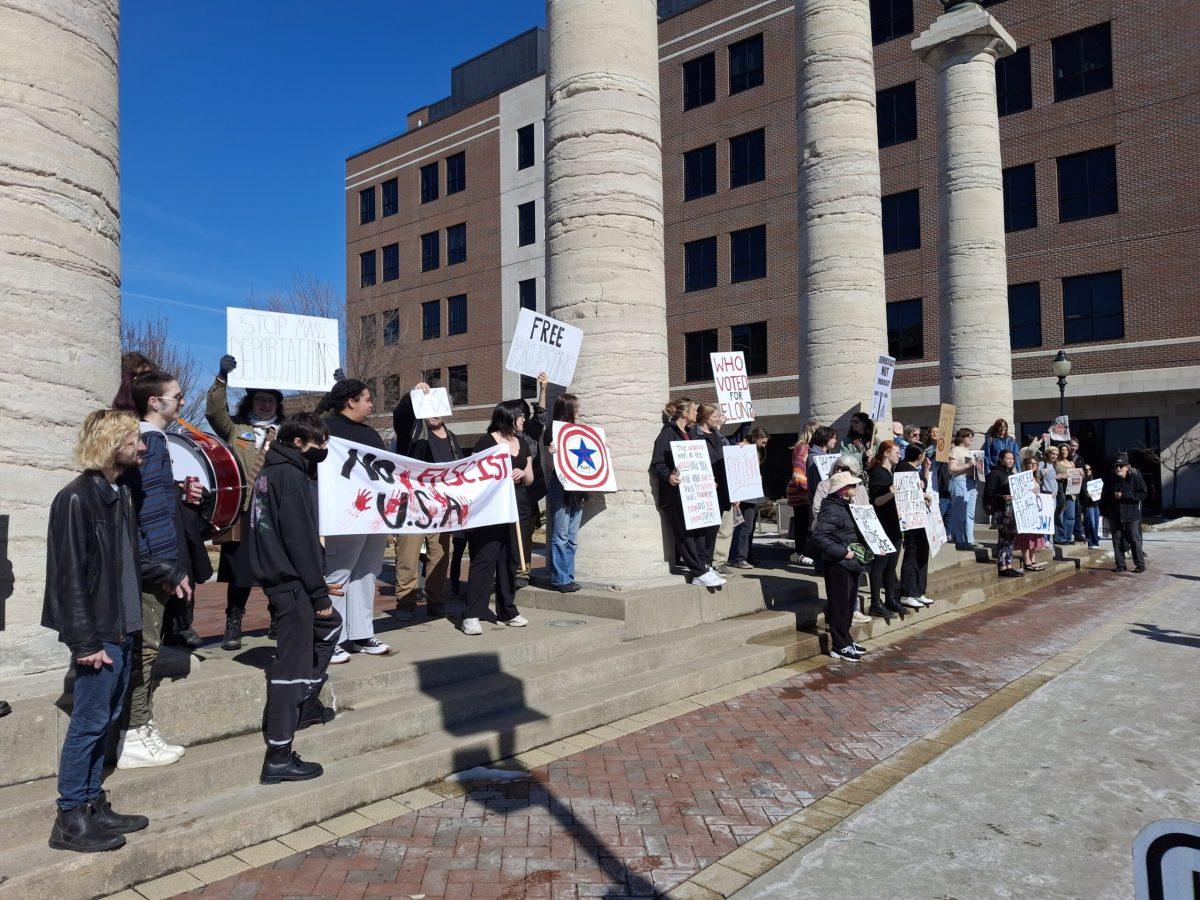Students, faculty and staff packed into the Shack at 9:30 a.m. to watch George P. Smith, Curators Distinguished Professor Emeritus of Biological Sciences, make MU history live from Stockholm, Sweden.
Smith became the first MU professor to be named a Nobel Laureate in [October](https://www.themaneater.com/stories/news/mu-professor-receives-2018-nobel-prize-in-chemistry). The historic awards ceremony has taken place annually on Dec. 10, the anniversary of Alfred Nobel’s death, since 1901.
The party commenced with opening remarks from Patricia Okker, dean of the College of Arts and Sciences.
“It is my great pleasure to be the dean of the academic home of [Smith], our celebrity rock star today,” she said.
Okker also elaborated on what the Nobel Prize means not only to Smith, but to MU.
“I think it really does reflect on who we are and what we are as an institution,” she said.
Okker noted that MU conducts both basic and applied research, with Monday’s celebration being one of the former. She said basic research often begins without knowledge of what will be solved or what impact the findings will have.
“He was curious about something,” she said. “The impact of [basic research] is greater than any one person’s imagination, even somebody as smart as Dr. Smith.”
Smith’s basic research in phage display involved applying his theory about evolution to bacteriophages, viruses that infect bacteria. Drugs have since been developed using his research to treat conditions such as rheumatoid arthritis and psoriasis.
Okker also said the event is a celebration of someone who is “Mizzou made,” noting that Smith has been working as a professor at MU for 43 years.
Chancellor Alexander Cartwright was unable to attend the event as he also traveled to Sweden, however a prerecorded message was played in his absence.
“It’s always great to meet someone who could win the Nobel Prize but then also be such a humble person, someone who recognizes that all that he did wouldn’t have been possible without the people around him,” Cartwright said.
A few such influences Cartwright mentioned included the faculty and students Smith worked with, as well as the culture and environment of the university. He also said he looks forward to seeing many more Nobel Prize winners from MU.
Provost Latha Ramchand was also invited on stage, celebrating a historical first less than four months into her time at the university.
“I just feel like I couldn’t have chosen a better time to come to this campus,” she said.
Ramchand said much of what it means to be in the Association of American Universities and a research institution is based in the kind of research Smith conducted.
“It means we dare ask questions to which we have no clue what the answers will look like,” Ramchand said. “We don’t know where it’s going, but at the end of the day it creates impact like nothing else.”
She said the campus executes collaboration in a unique and seamless way, allowing Smith to receive a prize in Chemistry while having a background in Biology.
Ramchand also took the opportunity to quiz the crowd on the history and disciplines of the Nobel Prize as well as introduce three of Smith’s graduate students, Michelle Williams, Wanda Figueroa-Cuilan and Hedieh Attai, to speak on his influence in their academic careers.
“He asks super challenging questions and always makes us think about our research even more,” Williams said. “[Smith] is an awesome human being and a great scientist, and I’ve been really lucky to know him.”
The crowd turned its attention to the live broadcasting from Stockholm. Smith accepted his award, which he shares with Frances Arnold of the California Institute of Technology and Gregory Winter of the M.R.C. molecular biology lab in Cambridge, England.
Immediately following, Okker played a prerecorded message from Smith and his wife Marjorie Sabel, Professor Emerita and Director Emerita of the MU School of Social Work, to close out the celebration.
“I feel that I’m accepting this prize not for myself personally, but on behalf of my great global science community, and also on behalf of my local science community here at the University of Missouri,” Smith said.
_Edited by Emily Wolf | [email protected]_












